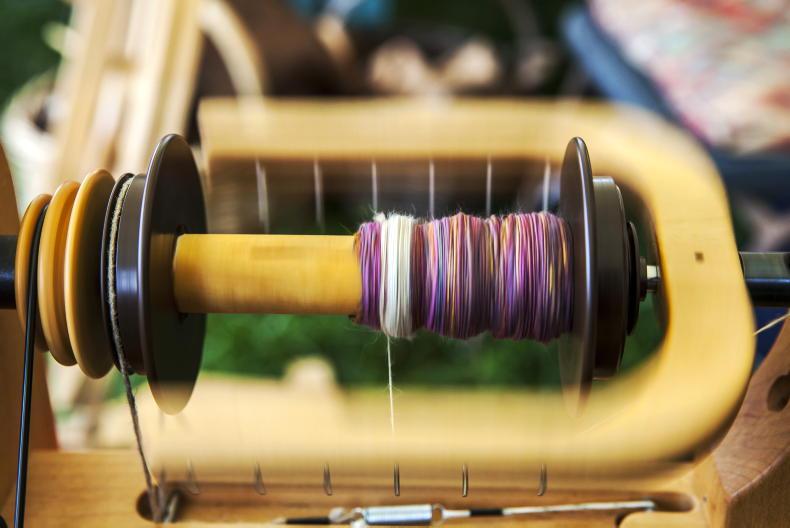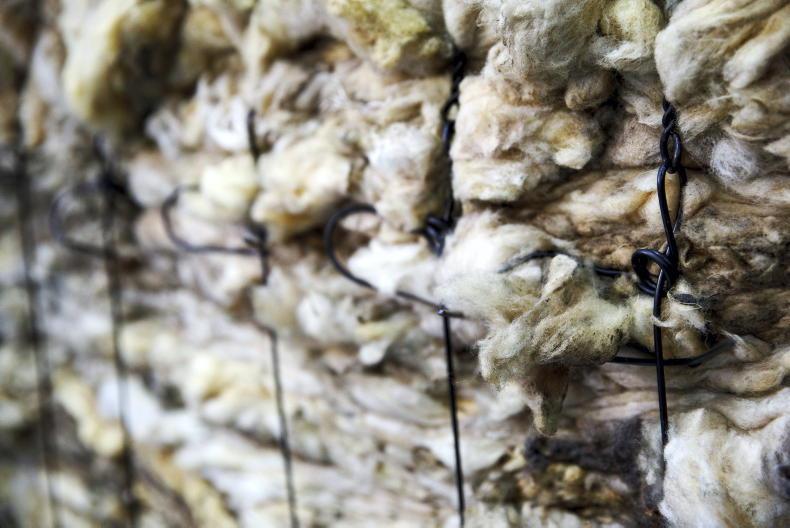The Government needs to show ambition for the development of an Irish wool industry, the Irish Natura and Hill Farmers Association (INHFA) has said.
The association has called for the a “significant increase” in support for the Irish Grown Wool Council, which was formally established last April.
INHFA chair Phelim Molloy said the current funding of €30,000 towards the council is “totally inadequate” and insisted that there should instead be “up to €1m to support, research and develop the necessary infrastructure to drive the industry on”.
“In developing a future for the woollen industry, it is vital that we recognise the enormous potential there is for natural products such as wool, especially in the textile and garment (fashion) industry as the need for a viable alternative to synthetic fibres increases,” he said.
Emissions
Molloy highlighted that the textile and garment sector is “contributing close to 10% of global carbon emissions, while also adding to the growing levels of microplastics”.

Wool is a sustainable product, said the INHFA. \ Philip Doyle
“With environmental concerns and especially climate change dominating debate and actions at a global level, all industries will have to re-evaluate their carbon emissions.
“These emissions are seen through the entire life-cycle of the garment from production through to disposal and while there is a recognition around the need to address this, progress is very slow,” he said.
Budget 2024
The INHFA chair called for the government to provide supports for the wool sector in Budget 2024.
He said that the cabinet needs to “recognise the enormous potential that such an industry can provide and our call for increased funding should be viewed in this context”.

There needs to be greater ambition for the Irish wool sector, said the INHFA. \ Donal O' Leary
Molloy suggested there could also be a levy on synthetic fibres. “This could be ring-fenced to support the development of natural wool-based alternatives and clearly such a levy would have to be across all EU member states,” he explained.
While noting that such a levy may seem radical, the INHFA chair pointed to similar levies across many sectors including energy and agriculture and detailed how “all sectors of the global economy will be required to make the necessary contributions in order to meet the challenges posed by climate change”.
The Government needs to show ambition for the development of an Irish wool industry, the Irish Natura and Hill Farmers Association (INHFA) has said.
The association has called for the a “significant increase” in support for the Irish Grown Wool Council, which was formally established last April.
INHFA chair Phelim Molloy said the current funding of €30,000 towards the council is “totally inadequate” and insisted that there should instead be “up to €1m to support, research and develop the necessary infrastructure to drive the industry on”.
“In developing a future for the woollen industry, it is vital that we recognise the enormous potential there is for natural products such as wool, especially in the textile and garment (fashion) industry as the need for a viable alternative to synthetic fibres increases,” he said.
Emissions
Molloy highlighted that the textile and garment sector is “contributing close to 10% of global carbon emissions, while also adding to the growing levels of microplastics”.

Wool is a sustainable product, said the INHFA. \ Philip Doyle
“With environmental concerns and especially climate change dominating debate and actions at a global level, all industries will have to re-evaluate their carbon emissions.
“These emissions are seen through the entire life-cycle of the garment from production through to disposal and while there is a recognition around the need to address this, progress is very slow,” he said.
Budget 2024
The INHFA chair called for the government to provide supports for the wool sector in Budget 2024.
He said that the cabinet needs to “recognise the enormous potential that such an industry can provide and our call for increased funding should be viewed in this context”.

There needs to be greater ambition for the Irish wool sector, said the INHFA. \ Donal O' Leary
Molloy suggested there could also be a levy on synthetic fibres. “This could be ring-fenced to support the development of natural wool-based alternatives and clearly such a levy would have to be across all EU member states,” he explained.
While noting that such a levy may seem radical, the INHFA chair pointed to similar levies across many sectors including energy and agriculture and detailed how “all sectors of the global economy will be required to make the necessary contributions in order to meet the challenges posed by climate change”.








 This is a subscriber-only article
This is a subscriber-only article











SHARING OPTIONS: